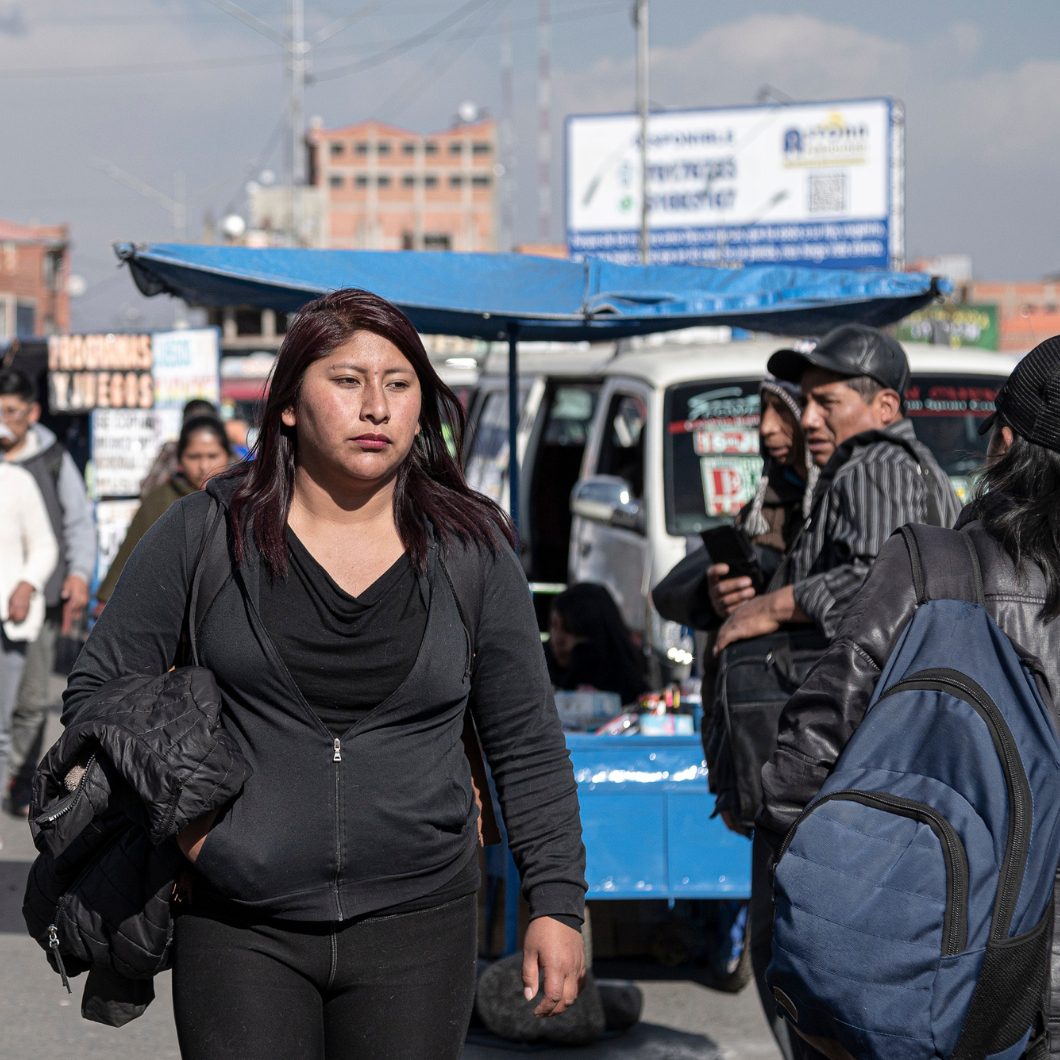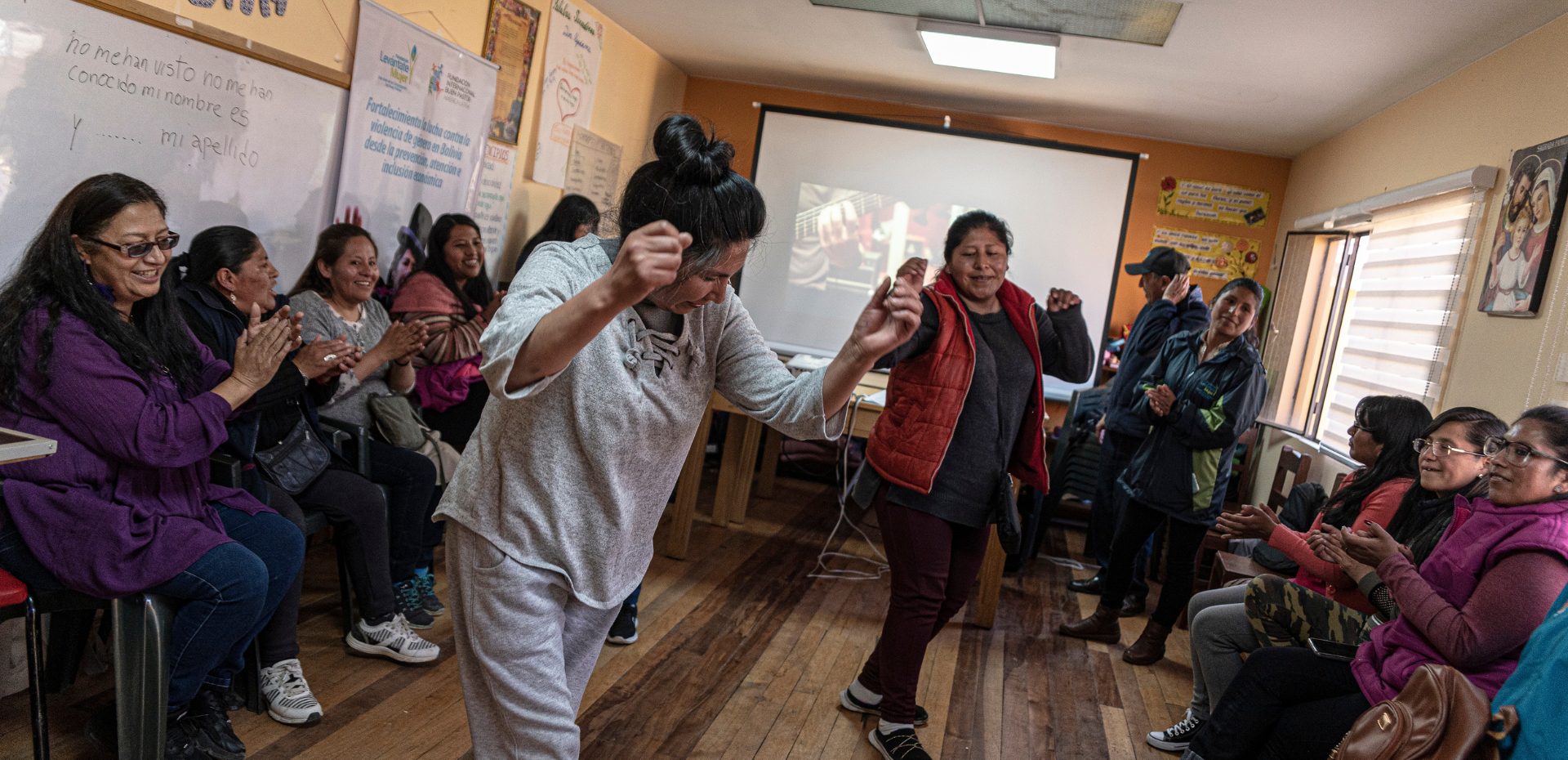

Gender-based violence, the sad reality for many women in Bolivia
Violence is the sad reality for many women in Bolivia, where as many as 70% have suffered from physical, sexual or psychological violence in their lives. The root cause of this sad reality is the culture of male dominance and the persistence of beliefs in male superiority and female submissiveness. These gender roles are deeply rooted and perpetuated by key institutions such as schools, churches, police stations, and hospitals. The damage caused by these convictions lead to exclusion, violence and worse: every three days a woman is killed in Bolivia.
Our strategy
- Providing education on violence prevention and women’s rights
- Training women and young people as ambassadors against violence
- Changing the harmful convictions leading to the violence by deconstructing key concepts
Our answer
Our mission in Bolivia is to stop suffering and prevent further victims of gender-based violence stemming from deeply engrained harmful convictions. We aim to change harmful convictions at the root of the problem – traditional gender roles, and the omnipresent macho culture. These convictions are deeply rooted in society and are at the heart of the abuse that women suffer. Through intensive dialogue, we challenge these convictions. Asking questions, such as “What does masculinity entail?” can help dismantling prejudices.
With the stereotypes of the roles of men and women being taught and replicated in social institutions, these beliefs become further internalised, complicating the task of changing these said convictions. With the help of our dialogue school, we engage people in conversations about their beliefs. The Bible is often used to justify the perception of male superiority. However, it can also promote a more egalitarian narrative, as it states that men and women were created equally. Using this potential, we organise Bible study sessions for men and women to discuss various interpretations of its content, further deconstructing harmful convictions.
Want to know more?
Would you like to find out more about this programme? Contact us via the button below.



